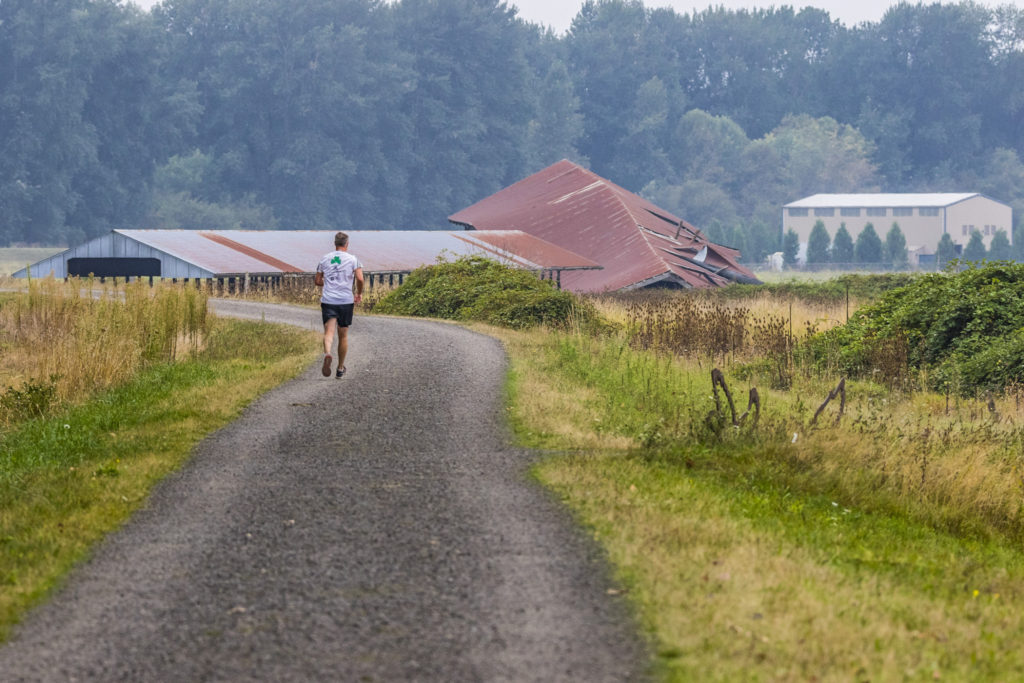WASHOUGAL — Although mostly satisfied with the state of their small city by the river, the majority of Washougal residents who answered a recent city-sponsored survey say they would like to see more retail development, better city street maintenance and improved quality of the city’s parks, police services and water utilities.
David Scott, Washougal’s city administrator, implemented the resident survey in 2014 to better gauge how city leaders and staff were responding to their residents’ needs. In that first survey, respondents said they were satisfied in general with Washougal’s amenities, but would like to see improvement on a number of fronts, including economic development and the number of city parks and recreational areas.
City leaders sent a second survey to 2,400 residents earlier this year as a sort of benchmark to see how they were doing.
“We wanted to do this periodically — in this case, bi-annually — as a benchmark against ourselves,” Scott explains. “We can see if what we’ve been doing is working.”
City staff had hoped to collect at least 400 responses and were pleased when 600 Washougal residents sent in surveys, giving the city an even better look at how Washougal residents view city services.
Here are a few key takeaways from the most recent Washougal resident survey:
Most Washougal residents are satisfied with the state of their city
Most residents who responded (92 percent) were satisfied with the overall quality of city services. Only 8 percent said they were “dissatisfied” with city services in general.First responders get high marks
While respondents were generally satisfied with city services, some areas got better marks than others. For example, while 82 percent were satisfied with the quality of fire, emergency medical and ambulance services, that number dropped to 63 percent when it came to satisfaction with Washougal’s parks.Residents are less satisfied with city services than they were just two years ago
Respondents’ satisfaction with city streets, economic development, parks and public safety were all lower than in 2014.
For example, in 2014, 75 percent of respondents said they were satisfied with “visibility of police in the community.” By 2016, that number had dropped to 67 percent. Likewise, residents’ satisfaction with enforcement of local traffic laws went from 66 percent satisfied in 2014 to 58 percent satisfied in 2014.
Likewise, areas that went down in satisfaction from 2014 to 2016 included:
- Maintenance of city streets (down 8 percent)
- Quality of city water utilities (down 6 percent)
- Quality of city sewer services (down 4 percent)
- Effectiveness of stormwater runoff (down 4 percent)
When asked what they would most like to see emphasized by city leaders over the next two years, respondents listed “maintenance of city streets” as their first priority, followed by effectiveness of economic development efforts, quality of city parks and quality of police services in second, third and fourth places.
Most respondents have strong ties to Washougal and have higher-than-average income:
The majority of people who responded to the city’s 2016 survey (56 percent) have lived in Washougal for at least 11 years. Nearly 20 percent have lived in Washougal for more than 30 years.
The ages of respondents varied, but only 13 percent were older than 65. About 45 percent of respondents were between the ages of 45 and 64, and 40 percent were younger than 45. The respondents were evenly matched (51 percent female to 49 percent male) along gender lines.
Of the 89 percent of respondents who provided income data, the majority claimed household incomes of more than $75,000 a year, slightly more than the $70,696 median family income for Washougal and well above the $64,585 national median family income.

Most residents are not satisfied with the city’s economic development:
Only 31 percent of respondents said they were satisfied with “the effectiveness of economic development” in Washougal.
In 2014, 64 percent of respondents said retail development within Washougal was either “too slow” or “much too slow.” Two years later, 71 percent of respondents said retail development was not keeping pace with what they’d like to see — 43 percent said it was “too slow” and 18 percent said retail development was “much too slow.”
With the majority of residents having to commute outside of Washougal for work and for many of their retail shopping needs, city administrator David Scott said the lack of satisfaction with economic development wasn’t a shock for city leaders.
“There are some things you can’t get here,” Scott says, referring to the city’s lack of big-box retailers available in Vancouver or the types of specialty retailers that dot nearby Camas’ historic downtown streets. “So it wasn’t a surprise to hear that there is not enough retail [in Washougal].”
Scott says the city is “bullish” when it comes to expanding its economic development and is hopeful for more retail and commercial opportunities in the city’s downtown core as well as on Washougal’s Columbia River waterfront.

Residents would be willing to pay for a community recreation space:
In the most recent survey, city leaders wanted to better understand what their residents really wanted in terms of community amenities, so they asked an open-ended question about what community amenities would add the most value to Washougal.
The company that conducted the survey collected all of the various answers and bundled them into matching categories. In the end, most respondents had mentioned some type of community center, recreational center or community pool as their number one wish for future Washougal amenities. Then the city asked residents, “would you be willing to pay for it?” and the majority said they would.
The city will soon put out a Request for Proposals (RFP) to get a needs-assessment on the community center idea, to better understand what residents need. Scott said the results from such an assessment could reach the city council by early next year.
To see the 2014 Washougal Community Survey, click here. For more information about the 2016 resident survey, click here.






